Downloads:
Recorded: October 20th at 7:00pm EDTDescription: The teaching profession has changed forever. No longer is it enough to have content and pedagogical knowledge but teachers must also be guides to take students into a future where most signs indicate it won't be easy, especially as more students experience, first hand, climate related catastrophes. This places whole new demands on teachers and will require adaptive minds and enhanced skills to help build resilience in students so that students are engaged in creating theirs and our future. This may be a time of generational transformation and how do we, as educators, prepare for this change?
Key questions:
- What challenges do teachers face in supporting students and what are solutions to those challenges?
- How can teachers build their own agility, creativity, resolve and resilience to work with students in a world that is changing and unpredictable?
- What are we preparing students for and thus, what skills do students need to enhance their own resilience?
- What resources can help teachers?
Theme of the Month Panelist Bios
Moderator:
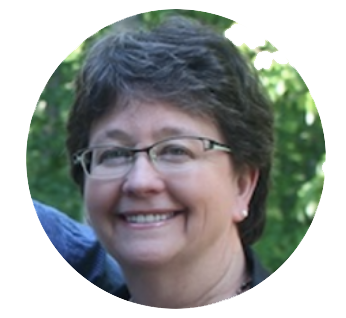
Margo Murphy has been an educator for 37 years. She currently teaches at Camden Hills Regional HS in Rockport, ME and also serves as the sustainability coordinator for the district. Her content focus is earth systems and environmental science and works to engage students in all aspects of climate science. She believes understanding the complexities of climate is essential knowledge for science literate students. She also works with students and student leaders on a variety of climate action and sustainability projects that have earned them state, national and international recognition.
In addition to her teaching she has served on numerous state and national committees. She currently chairs the board of the Maine Mathematics and Science Alliance and is an advisor to the STEMTLnet. Previously she served on the Teacher Advisory Council for the National Academies of Science and as a STEM Ambassador for NSTA. Margo is a Nationally Board Certified teacher and has received the Presidential Award for Excellence in Science Teaching, the Presidential Innovation Award for Environmental Educators and SeaWorlds Environmental Educator of the Year.
Panelists:
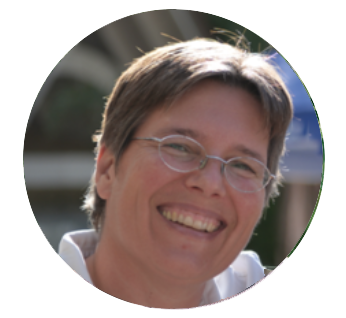
Dr. Susanne C. Moser, (she/her) is an independent scholar and consultant who works in the US and internationally from a base in western Massachusetts, the unceded ancestral homeland of the Nipmuc and Pocumtuc. A geographer by training (Ph.D. 1997, Clark University), her work focuses on adaptation to climate change, science-policy interactions, climate change communication, and psycho-social resilience in the face of the traumatic and transformative challenges associated with climate change. She has served on scientific advisory boards for Future Earth, the International Science Council, the US National Research Council and contributed to IPCC and US national climate assessments. You can learn more about her at https://www.susannemoser.com.
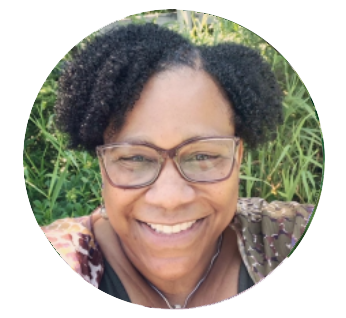
Mrs. Denise Rogers is a native of Orange County, California. Mrs. Rogers earned a Bachelor of Science degree in biology education from Claflin University. As an undergraduate student, she was selected to participate in internships at the Medical College of Wisconsin and the University of Minnesota. Upon graduating from Claflin University, Mrs. Rogers taught in South Carolina for five years before relocating to Richmond, Virginia. Mrs. Rogers earned a master’s degree in interdisciplinary studies with a concentration in environmental science and administration from Virginia Commonwealth University and a master of science in pharmacy with a concentration in forensic science from the University of Florida. Mrs. Rogers has over twenty-six years of experience teaching middle school science, high school biology, anatomy, forensic science, ecology, and high school summer remediation science classes. She has also served as an instructional specialist for math and science for two years and taught science courses for students in grades 6 –12 in an alternative school setting. In addition, Mrs. Rogers also taught science at ChallengeU, an online graduation recovery program. During the spring of 2019, Mrs. Rogers earned an educational specialist degree in curriculum and instruction. Currently, Mrs. Rogers teaches High School Biology and AP Biology for Richmond City Public Schools in Richmond, VA. Mrs. Rogers’s love of science and children can be seen as she exposes students to new and exciting concepts and shares her travels and experiences with everyone. Her cultured upbringing, hands-on approach, and rapport with students and staff have made her the distinguished educator that she is today.
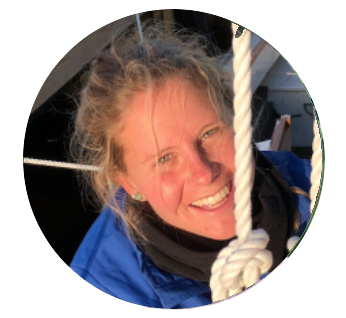
Ronnie Vesnaver, currently lives on the Eastern Shore of Maryland where she directs a place-based semester program for high school juniors and seniors called the Chesapeake Watershed Semester (CWS). Ronnie also acts as the environmental humanities teacher for the program. Over the course of the semester, students spend 30% of their time in the field learning in an interdisciplinary fashion. The Chesapeake Bay watershed serves as an amazing backdrop for students to explore the confluence of ecology and politics and Ronnie enjoys nothing more than being able to show her students the wonders of the watershed. Ronnie is a dedicated environmental educator because she feels strongly that there is no other topic that matters more for the world we are living in and the world we will continue to face. In particular, she has been interested and engaged in determining the ways to help her students take on a true environmental ethic. Prior to directing the Chesapeake Watershed Semester, Ronnie taught at the Pennington School in Pennington, NJ for five years where she also led major schoolwide sustainability initiatives. During her time at Pennington, Ronnie completed her masters in environmental history. Her graduate work mostly focused on coastal and marine environmental history. In her free time, Ronnie loves spending time with her dog Archie, running, paddling, and exploring the Eastern Shore.
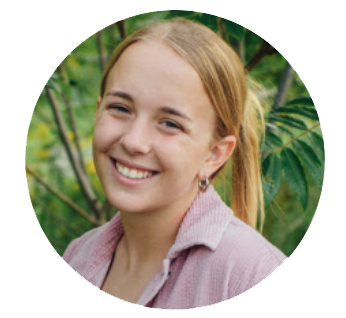
Sadie Woodruff is a first year at Wesleyan University in Middletown, CT. She is a prospective Environmental Science and Science in Society double major. Last year she worked for the Island institute as a youth advisor for their Youth Leadership Series where she moderated conversations on youth activism and leadership. She also participated as a youth panelist in UMaine’s Climate Change Institute’s Summer Workshop where she shared her experience in the Maine climate activism sphere, the good and the bad, with teachers from across the state of Maine. Beyond other leadership in environmental clubs in high school, Sadie has been a constant proponent for talking about and supporting those with climate anxiety. She wrote a piece that was included in a presentation to school nurses from across the country talking about her experience with climate anxiety and how to support those who are struggling.